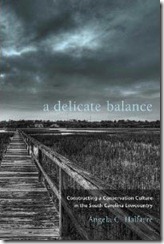The GLP Films’ Student Film Project is an annual contest that invites students to pick up a camera and create their own short films documenting sustainability-related stories in their school, home, or community. This year three EES / SUS students (Tim Sharp, Josie Newton, and Melanie Brown) in the Engaged Living ECOS program submitted a film “Gardening for Good” that they made as part of their FYS 1126 course (Sustainability) with Dr. Dripps. Their film won the college division! Congrats to these three – the film can viewed here or by clicking on the image below.
WINNERS
College – "Gardening for Good" Josie Newton, Tim Sharp, Melanie Brown, Furman University
https://vimeo.com/album/2919991/video/98380526
Other winners are:
Middle School – "Parras Grades of Green" Lilly Sprangler, Parras Middle School
https://vimeo.com/album/2919991/video/98384804
High School – "ECO2School" Samantha Perry and Jasmine Jolly, Maria Carrillo High School


 Patrick Starr (Earth and Environmental Science and Political Science Major) and Wes Floyd (Sustainability Science Major) are among six students from three Universities that received fellowship from Piedmont Natural Gas Foundation to support and pursue real-world problem solving projects in collaboration with local communities and non-profit and government agencies.
Patrick Starr (Earth and Environmental Science and Political Science Major) and Wes Floyd (Sustainability Science Major) are among six students from three Universities that received fellowship from Piedmont Natural Gas Foundation to support and pursue real-world problem solving projects in collaboration with local communities and non-profit and government agencies.